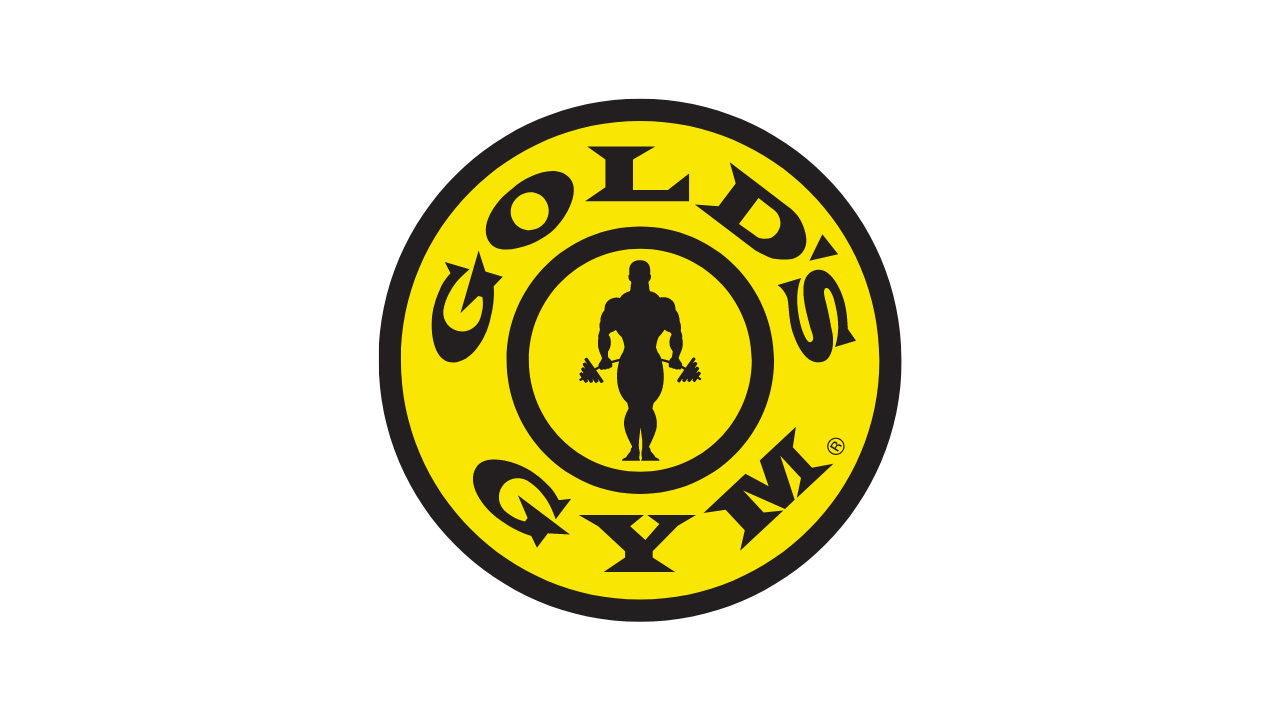How to Open a Gym: Requirements for Opening a Gym in 2025
Learn how to open a gym and the requirements to open a gym with this quick gym start up guide.

What are the steps to owning a gym? Well, you can buy a gym, open a gym, or find a gym franchise to own, but even if you want to learn how to open a gym without any money, you will need to know these key things. Our guide to learn how to start a gym will cover everything from the cost to open a gym to conducting gym market research to choosing a gym location to the legal requirements to open a gym and gym marketing.
Here’s a table outlining the key information and requirements needed to open a gym (with detailed information on each topic provided below):
| Category | Details |
|---|---|
| Business Plan | Detailed gym business plan covering gym target market, services offered, gym pricing strategy, and gym revenue projections. |
| Legal Structure | Choose between sole proprietorship, partnership, LLC, or corporation. Register your gym business name. |
| Licenses & Permits | Obtain necessary business licenses, health permits, and possibly zoning permits based on location. |
| Insurance | Get gym general liability insurance, property insurance, workers’ compensation, and possibly professional liability insurance. |
| Location | Select a location with good visibility, accessibility, and sufficient space to accommodate gym equipment and services. Lease or purchase agreement needed. |
| Gym Equipment | Purchase or lease gym equipment like treadmills, free weights, resistance machines, etc. Consider quality, warranty, and maintenance services. |
| Interior Design | Plan layout, flooring, lighting, mirrors, and other design elements that contribute to the gym atmosphere. |
| Technology & Software | Implement the best gym management software for member tracking, scheduling, billing, and customer relationship management. Consider additional technology like access control systems. |
| Staffing | Hire qualified trainers, front desk staff, cleaning staff, and management. Ensure proper certifications for trainers and conduct background checks. |
| Marketing & Promotion | Develop a gym marketing plan that includes social media, online ads, local advertising, partnerships, and special events to attract members. |
| Membership Structure | Define membership tiers, pricing, and benefits. Consider offering discounts, family plans, and corporate memberships. |
| Financial Planning | Secure funding through gym loans, investors, or personal savings. Set up gym accounting systems, and create a gym budget for startup costs and ongoing expenses. |
| Compliance | Ensure compliance with ADA regulations, health and safety standards, and employment laws. |
| Branding | Develop a strong gym brand identity including a logo, color scheme, and brand messaging. Explore gym name ideas and create a gym website. Create branded merchandise and signage. |
| Community Engagement | Plan ways to engage with the local community, such as hosting gym events, classes, workshops, or charity events. |
| Launch Strategy | Plan a gym grand opening event and pre-launch marketing to generate buzz. Offer special promotions to attract initial members. |
| Ongoing Operations | Develop standard operating procedures for day-to-day operations, including cleaning, maintenance, member services, and staff management. |
Feel tired yet?
Don’t worry!
Starting a gym business can feel overwhelming, but understanding the key gym requirements and taking actionable steps is crucial. You can learn how to open your own gym if you are willing to put in the work. Many prospective gym owners wonder, “Do you need a license to open a gym?” The answer is yes—gym licensing is one of the essential steps in ensuring your gym operates legally and smoothly. Beyond just legalities, knowing how to build a gym from the ground up involves more than just finding the right location and equipment; it requires a clear vision of your gym business model, a solid plan to attract your first paying members, and having the best gym software to keep your gym organized.
When starting a new gym, it’s easy to get caught up in the complexities, but the most important thing is to take that first step. Whether you’re starting small or aiming for something big, getting those first paying members on board is what really sets your business in motion. And with Exercise.com, you’re never alone—our professional-grade software supports every fitness business model, making it easier for you to manage and scale your gym as you grow. So, if you’re serious about how to open a gym, take action now, secure your first clients, and let the journey begin!
Get the lowdown on opening a gym for dummies. Do your homework to learn how to create a gym business plan, how to create a gym budget, how to find gym insurance, how to choose a gym location, how to negotiate a gym lease, use our gym design guide for gym layout ideas, and all of the things you should know before opening a gym.

Learning how to start a fitness business is an amazing way to combine a love for health and fitness with a way to make money from fitness, but remember that a gym is a business too, and in order to have a successful gym business, you need to avoid the many common gym owner mistakes that can lead to reasons why gyms fail (for many of the same reasons, over and over, time again). There are many pros and cons to owning a gym so make sure you understand how to increase gym revenue and profit rather than just treating your new gym as a fun side hobby.
If you’re thinking about how to open up a gym, particularly in a small town, it’s important to remember that building a client base is key, even if that means starting with personal training clients or offering bootcamp classes. This approach helps you establish a presence and start generating income, proving the viability of your business. Understanding how to open a gym in a small town can also give you a unique advantage, as you can focus on creating a close-knit community, which is a powerful tool in attracting and retaining members.
If you’re researching how to open a gym, then understanding the requirements for gym opening is essential. From gym licenses and permits to choosing the best locations to open a gym, there are key steps that will determine your success. Get access to all the free fitness templates you need, including gym business plans, gym contracts, gym budgets, waivers, and more to help with the gym registration process.
So, what do you need to open a gym? The process includes obtaining a gym business license, understanding gym membership requirements, securing commercial gym equipment for sale, and evaluating gym licenses and permits costs. If you’re wondering, “Do you need a license to open a gym?” or “Does a gym need a license?” then researching local regulations is essential. Gym ownership requirements can vary, and while you don’t need a bachelor’s degree to open a gym, understanding gym business operations is crucial. Whether you’re looking into franchise gym opportunities, buying a gym business for sale, or launching an independent facility, the best way to start up a gym is with proper planning. With Exercise.com, you can automate billing, manage memberships, and streamline operations for success. Get a demo now and see how our platform simplifies gym management.
From understanding the cost to start a gym and gym owner salary expectations to determining the best place to open a gym, Exercise.com provides the best gym management software for fitness business owners. Whether you’re launching a new fitness center or buying a gym franchise for sale, our platform helps you manage operations, increase revenue, and maximize efficiency. Get a demo now.
Then be sure to use the professional gym owner’s software solution. The best gym management software, and the best personal training software means that you can manage your entire gym in one place.
Offer booking and scheduling for your gym’s packages, sessions, memberships, and more.

Create and sell fitness memberships, products, and digital offers.

Manage, message, and market to your leads and members.

All from your very own custom branded fitness apps.

And much more!
Read on for the steps to opening a gym, browse through our gym owner guide, and then when you are ready to supercharge your gym and make your gym stand out, then figure out why you should open a gym, and explore the best gym management software around, Exercise.com

#1 Conduct Market Research
Not every market will support a gym. And every market is different. Some markets will support a CrossFit box (or two or three!) while others may not—but a Planet Fitness or an F45 could be just the opposite. The type of gym you want to start is closely related to your gym target market research. Understand your target market, the gym options currently available, and why starting your gym will be profitable in this market. Research competitors and have a fulsome understanding of their prices, products, and competitive positioning.
Be sure to model out in-person and online gym revenue, because hybrid gym models will not only open up new gym marketing opportunities, but offer up entirely new ways to conduct online gym market research (pre-selling gym memberships on Facebook, Instagram, TikTok, etc. being just one of them).
After all, the single biggest proof point about whether you should start your gym or not is if you have real people pulling out real credit cards and swiping them for your gym’s memberships and packages. Think it can’t be done? Think again. Stir up excitement and engagement with boot camps at a local park (or parking lot, for that matter). Get the endorphins and the ACH bank drafts flowing at the same time.
Finally, have a full understanding of your gym cost structure. How much will you pay your gym front desk staff? How much will you pay your personal trainers? How much will your gym lease cost? Understanding all of the costs that go into opening a gym is key. Continue reading for the steps towards opening a gym you can put into action today.
#2 Create a Gym Business Plan
If you are starting or buying a gym franchise then this part is easy for you, because this is all done for you already. And, frankly, many of these other steps are done for you as well—or, at least you must do them, but on easy mode. If you are not operating on easy mode in the gym franchise world (not without its cons too, we know, we know), then your gym business plan is something you should think carefully about. This is less about a fancy looking deck and more about building confidence in any capital partners you may need to help you start your gym.
#3 Secure Gym Funding
Getting a bank loan for starting a gym, sometimes in the form of an SBA loan, can help give you the capital you need to start your gym. Alternatively, you can use personal savings or a business partner with capital to inject into the business. If you want to start a gym without any money of your own, then getting good at obtaining gym funding by inspiring confidence in those with that money is a critical skill to have. The good news is that if you think through each of these steps to opening a gym, then you will be prepared for almost any question thrown your way.
#4 Choose a Gym Location
As they say, location, location, location. Yes, you need to be online, and yes, you need to have a quality offering, but as discussed in the gym market research phase, you should have a clear understanding of where the best gym location is for your new gym business. And just because it’s an easy commute from where you happen to live doesn’t mean it will be a profitable gym location!
Read more:
- How to Choose the Best Gym Location
- How to Scale a Gym to Multiple Locations
- Best Gym Multi-Location Software
- How profitable is owning a gym?
#5 Purchase or Lease Gym Equipment
The type of gym you start will obviously heavily impact your gym equipment needs. CrossFit boxes vs big box gyms vs fitness studios will have entirely different needs and cost structures. Do your research and get price quotes on purchasing or leasing gym equipment.
Also, keep in mind that commercial gym equipment prices are much higher than home gym equipment. Your commercial gym treadmills will take a beating; they won’t be sitting idle during the day being used as clothes hangars like many a woebegone home treadmill.

Here is a table detailing the average price range for various types of gym equipment for use in commercial gyms:
| Equipment Type | Price Range |
|---|---|
| Treadmill | $2,000 – $10,000 |
| Elliptical Trainer | $1,500 – $6,000 |
| Stationary Bike | $1,000 – $4,000 |
| Rowing Machine | $800 – $2,000 |
| Stair Climber | $1,000 – $3,000 |
| Free Weights | $1,000 – $10,000 |
| Weight Machines | $2,000 – $15,000 |
| Bench Press | $500 – $1,500 |
| Squat Rack | $500 – $1,500 |
| Medicine Ball | $20 – $100 |
| Exercise Mat | $20 – $100 |
| Jump Rope | $10 – $50 |
Please note that these prices are estimates and may vary depending on the brand, model, and condition of the equipment. Additionally, these prices may not include shipping or installation costs. Be prepared to have to repair and replace gym equipment regularly when your gym is hopefully packed to the brim with exercisers using your gym equipment every day.
Read More:
- What equipment is needed to start a gym?
- What equipment is needed to start a boutique gym?
- What equipment is needed to start a martial arts gym?
- What equipment is needed to start a boxing gym?
- What equipment is needed to start a sports performance gym?
- What equipment is needed to start a CrossFit gym?
#6 Hire Gym Staff
Yes, you are going to have to deal with people all day long at your gym. Not just gym members, but gym staff. Some will be good, some not so good, and some truly great. Your hiring will be a key part of your success or failure as a gym owner.
This includes making sure every one on your staff is not only trained but accredited and certified with any of the necessary personal training certification companies.
Read More:
#7 Develop Gym Policies and Procedures
But if you are a details person, then take heart because implementing top-notch gym policies and procedures are right up there with hiring the right staff for your gym. Even the best, most proactive and initiative-filled gym staff need expectations set with your gym policies and procedures.
Again, gym franchisees have it easy here, but even independent gym owners can take a page from the franchise gym owner playbook. Get creative in your marketing and advertising, not in the basic blocking and tackling of gym standard operating procedures and other basic gym best practices. Talk to those who have run a gym successfully at scale for advice.
Keep in mind that this applies to you, and not just your staff too. Make sure that you have all of the required gym licenses, permits, zoning requirements, and the like.
Read More:
#8 Market and Advertise Your Gym
Why is gym marketing and advertising important? You can have the best gym in the world with the best people and the best results around, but if no one knows about your gym, or you have some type of brand perception or market mismatch then your gym will not be a success. On the flip side, often those with the best marketing win, even if their product or experience is only so-so. So take heart, your new gym will have time to improve, but what you cannot do is expect to run a profitable gym if you can’t acquire gym members and personal training clients.
Read More:
#9 Train Gym Staff
You know those gym policies and procedures you created? Well, people are people and they tend to ignore or forget things. So if you want your gym to be running like a well-oiled machine then be prepared to invest into gym staff training. Regularly.

#10 Develop Gym Programs
Which gym packages, products, and services will you offer? Will you offer high ticket fitness sales, low cost memberships, personal training packages? Private or semi-private? Group classes? What times? These are all important decisions to make as you shape your gym program offerings.
#11 Determine Your Target Market
Come on, you should be laser focused in your gym target market after doing market research so you should be chomping at the bit on how to identify this target market and sell into it. Is it weekend warriors? Youth athletes? Yoga moms? College bros? Analyze your surrounding area for the opportunity. Maybe you will find you want to open a yoga studio, or open a sports performance gym, or something else entirely.
#12 Choose a Business Structure
LLC, C-Corporation, S-Corporation, partnership, it seems like the list just goes on. Here, the answer is easy. Talk to a qualified tax or financial advisor to discuss what options you have and what might be best for your gym. A CPA, financial advisor, and attorney will all be useful allies as you identify the best business structure for your gym business.
You will then be able to do the following:
- Choose an official business name
- Get Federal and State tax IDs
- Open a business bank account (and maybe a business credit card)
Many accountants can help you with all of the above at the same time.
Read More: Which business structure is best for a gym?
#13 Obtain Gym Insurance
You can save up to 25% in discounts on business insurance for gyms, personal trainers, and online fitness professionals.
Here are the different types of gym insurance you may want to consider:
- General Liability Insurance – This covers the gym for liability claims arising from accidents or injuries that occur on the gym’s property.
- Property Insurance – This covers the gym’s building and equipment for damages caused by events such as fires, storms, and theft.
- Business Interruption Insurance – This covers the gym for lost income and expenses if the business is disrupted by an insured event, such as a fire or natural disaster.
- Professional Liability Insurance – This covers the gym for liability claims arising from professional mistakes or errors made by staff, such as personal trainers or fitness instructors.
- Accident and Health Insurance – This covers the gym for medical expenses and lost income resulting from accidents or illnesses that occur on the gym’s property.
- Workers’ Compensation Insurance – This covers the gym for medical expenses and lost income resulting from workplace injuries sustained by employees.
It’s important to review your gym insurance needs carefully and consult with an insurance broker or agent to determine the appropriate coverage for your gym. Keep in mind that gym insurance requirements may vary by state and by the specific risks associated with your business.
You can save up to 25% in discounts on business insurance for gyms, personal trainers, and online fitness professionals.
Read More:
#14 Develop a Gym Budget and Financial Plan
Work with your gym financial advisor, accountant, or CPA to create a budget for your gym and a financial plan that will help you start and stay on track.
#15 Negotiate Gym Lease Terms
If you don’t build a gym from the ground up (expensive!), then your gym lease will be one of your biggest expenses, alongside your personnel costs. Choose wisely. Don’t rush into a decision. And negotiate, negotiate, negotiate. And maybe enlist the help of a professional.
Read More: How to Negotiate a Gym Lease
#16 Design and Layout Your Gym
This can be fun, but don’t go overboard. Remember that gym budget and financial plan? Imagine your accountant frowning in disappointment every time you want to go over budget.
Read More:
#17 Choose Gym Software
You like how we snuck this one in here, didn’t you? Yes, but of course, it’s still true! Check out the best gym software to save you time and help you increase revenue.

#18 Set Up a Gym Billing System
And you want to bill your gym members, collect gym memberships automatically, not have to chase people down for payment, and do all of those things that every gym owner needs to do in order to have cash coming into the bank account, right? And even better if it could be fully integrated into your software platform, website, online booking, custom branded fitness apps, and more? Yeah, we do that too. Check out our gym payment processing and full gym payments platform.
Read More:
#19 Establish Local Partnerships
Other local businesses can be complementary to your gym business. Pay extra close attention to the smoothie shops, the supplement stores, and other businesses that your target market also shops at.
Read More: Gym Partnership Marketing
#20 Launch Your Gym!
Now it’s time to launch your gym! Yes, you can analyze whether you should start a gym, and how to best start a gym, and learn all the steps to owning a gym, and on and on, but at some point, you have to enter the arena, as they say, and just start. We will be cheering you along every step of the way.

Ready for the best gym management software platform to help you run your gym?
Opening a Gym Checklist
Opening a gym involves several key steps, and having a detailed checklist can simplify the process immensely. With Exercise.com, you have an all-in-one gym management software that assists with many tasks related to setting up your gym.
- Business Plan: Start by creating a detailed gym business plan that outlines your vision, target market, competitors, unique selling points, and financial forecasts.
- Find a Location: The location of your gym plays a crucial role in its success. Choose a gym location that is easily accessible and has a high demand for fitness facilities.
- Secure Financing: Determine your gym startup costs and secure adequate gym financing. This may come from savings, loans, or investors.
- Legal Requirements: Register your business, obtain necessary licenses and permits, and ensure that you meet all health and safety regulations.
- Gym Layout and Equipment: Design your gym layout and purchase necessary equipment. Exercise.com can help with equipment tracking and maintenance reminders.
- Hire Staff: Hire qualified gym staff, including trainers, customer service representatives, and cleaning staff. Exercise.com’s staff management and scheduling feature can streamline this process.
- Marketing and Promotion: Develop a comprehensive gym marketing plan to attract members. Use Exercise.com’s integrated marketing tools to boost your online presence and attract more clients.
- Membership Management: Use Exercise.com’s best gym management software to handle memberships, bookings, and client communication.
- Open Your Gym: Plan a grand opening event to attract potential members and create buzz around your new facility.
Read More: How to Start a Fitness Business
Opening a Gym Business Plan
Your business plan is the roadmap for your gym, encompassing your vision, objectives, strategies, and financial forecasts. Exercise.com provides valuable data and insights that can inform your business plan. Here’s what it should include:
- Executive Summary: An overview of your business, outlining your gym’s concept, location, and unique selling points.
- Company Description: Detailed information about your gym, including the services and amenities you’ll offer.
- Market Analysis: Information about your target market, competition, and how your gym fits into the current market.
- Organization and Management: How your gym will be structured and who will manage it. Exercise.com provides a platform to manage your staff efficiently, helping in this aspect of your business plan.
- Services and Products: A detailed list of your gym services and products. This may include membership packages, personal training services, group classes, and retail products.
- Marketing and Sales Strategy: How you’ll attract and retain members. You can leverage Exercise.com’s built-in marketing tools to boost your online presence and attract more clients.
- Financial Projections: A forecast of your income, expenses, and profitability. Exercise.com can provide valuable analytics to help you develop accurate financial projections.
Read More:
- How to Create a Gym Business Plan
- Gym Business Plan Template
- CrossFit Gym Business Plan Template
- How to Choose a Gym Target Market
- Gym Sales Forecast Guide
Legal Requirements for Opening a Gym
Opening a gym involves satisfying several legal requirements. Here’s what you need to consider:
- Business Registration: You’ll need to register your business with local and state authorities.
- Licenses and Permits: Obtain necessary licenses and permits from local, state, and federal agencies. These may include a business license, building permit, and health department permit.
- Insurance: Gyms should carry several types of gym insurance and personal trainer insurance, including liability insurance, property insurance, and worker’s compensation insurance.
- Health and Safety Regulations: Gyms must comply with local health and safety regulations. This includes cleanliness standards and the presence of safety equipment like fire extinguishers and first aid kits.
- Waivers and Contracts: Have a lawyer help you draft waivers of liability and membership contracts to protect your business from legal issues.
- Employee Documentation: Ensure you meet all legal requirements for hiring staff, including verifying work eligibility and complying with labor laws.
Exercise.com’s platform provides tools to manage legal requirements, like waivers and contracts, all within the platform itself.
Read More:
Key Things to Know Before Choosing a Location to Open a Gym
So where should you open a gym? When considering opening a gym, a prospective owner should gather key statistics and information about the state or location to make an informed decision. Here are some essential factors to consider when choosing the best location for a gym (and then maybe even scaling a gym to multiple locations):
1. Demographics
- Population Size and Growth: The total population and its growth rate in the area.
- Age Distribution: The percentage of the population in key age brackets (e.g., 18-35, 35-50), typically the most active gym-goers.
- Income Levels: Median household income to gauge the purchasing power of potential members.
- Education Levels: Higher education levels can correlate with a higher likelihood of gym membership.
2. Market Demand and Competition
- Existing Gyms and Fitness Centers: Number, types (e.g., boutique studios, large chains), and locations of competitors.
- Market Saturation: Ratio of gyms to the population to assess market saturation.
- Membership Rates: Average membership rates in the area, including price points and types of memberships offered.
- Trends in Fitness: Popular fitness trends in the area (e.g., HIIT, yoga, CrossFit) and any unmet demand.
3. Economic and Business Climate
- Cost of Doing Business: Including rent, utilities, wages, and taxes specific to the location.
- Economic Stability: Unemployment rates and economic growth of the area.
- Supportive Business Environment: Availability of incentives, grants, or tax breaks for new businesses.
4. Health and Fitness Culture
- Physical Activity Levels: State or regional statistics on physical activity, obesity rates, and health-related metrics.
- Community Support: Presence of local fitness events, health initiatives, and partnerships with health-related organizations.
5. Local Regulations and Licensing
- State and Local Regulations: Specific licenses, permits, and health regulations required for gyms.
- Zoning Laws: Zoning regulations that may affect where a gym can be located.
- Sales Tax Rates: Applicable taxes on gym memberships and services.
6. Real Estate Considerations
- Location Suitability: Proximity to residential areas, workplaces, or commercial centers.
- Foot Traffic: Potential for high foot traffic and visibility.
- Parking Availability: Accessibility and convenience of parking for members.
7. Labor Market
- Availability of Qualified Staff: Availability of trained fitness professionals, instructors, and support staff.
- Wage Expectations: Average salaries for gym staff, trainers, and management.
8. Consumer Behavior and Preferences
- Membership Retention Rates: Average retention rates for gyms in the area.
- Preferred Hours of Operation: Insights into when potential members are most likely to use the gym.
- Preferred Services and Amenities: Demand for additional services such as personal training, childcare, or nutrition coaching.
9. Environmental and Social Factors
- Weather and Climate: Climate conditions that may influence indoor versus outdoor exercise preferences.
- Safety and Crime Rates: Safety of the area, which can impact members’ willingness to visit.
10. Economic Indicators
- Cost of Living: How the cost of living compares to the national average, affecting disposable income.
- Economic Development: Trends in the local economy, including new businesses or residential developments that could bring more potential members.
By analyzing these factors, a prospective gym owner can better understand the potential market, anticipate challenges, and position their business for success in a new location.
State Guides to Open a Gym
Check out these state-specific guides to opening a gym by state:
- How to Open a Gym in California
- How to Open a Gym in Texas
- How to Open a Gym in Florida
- How to Open a Gym in New York
- How to Open a Gym in Pennsylvania
- How to Open a Gym in Illinois
- How to Open a Gym in Ohio
- How to Open a Gym in Georgia
- How to Open a Gym in North Carolina
- How to Open a Gym in Michigan
- How to Open a Gym in New Jersey
- How to Open a Gym in Virginia
- How to Open a Gym in Washington State
- How to Open a Gym in Washington DC
- How to Open a Gym in Arizona
- How to Open a Gym in Massachusetts
- How to Open a Gym in Tennessee
- How to Open a Gym in Indiana
- How to Open a Gym in Missouri
- How to Open a Gym in Maryland
- How to Open a Gym in Wisconsin
- How to Open a Gym in Colorado
- How to Open a Gym in Minnesota
- How to Open a Gym in South Carolina
- How to Open a Gym in Alabama
- How to Open a Gym in Louisiana
- How to Open a Gym in Kentucky
- How to Open a Gym in Oregon
- How to Open a Gym in Oklahoma
- How to Open a Gym in Connecticut
- How to Open a Gym in Iowa
- How to Open a Gym in Utah
- How to Open a Gym in Nevada
- How to Open a Gym in Arkansas
- How to Open a Gym in Mississippi
- How to Open a Gym in Kansas
- How to Open a Gym in New Mexico
- How to Open a Gym in Nebraska
- How to Open a Gym in West Virginia
- How to Open a Gym in Idaho
- How to Open a Gym in Hawaii
- How to Open a Gym in Maine
- How to Open a Gym in New Hampshire
- How to Open a Gym in Montana
- How to Open a Gym in Rhode Island
- How to Open a Gym in Delaware
- How to Open a Gym in South Dakota
- How to Open a Gym in North Dakota
- How to Open a Gym in Alaska
- How to Open a Gym in Vermont
- How to Open a Gym in Wyoming
- How to Open a Gym in Canada
- How to Open a Gym in Australia
- How to Open a Gym in the UK
- How to Open a Gym in India
- How to Open a Gym in NYC
- How to Open a Gym in Germany
- How to Open a Gym in France
- How to Open a Gym in the Netherlands
- How to Open a Gym in Brazil
Pros and Cons of Opening a Gym
Opening a gym can be rewarding but also comes with challenges. Exercise.com can assist in managing some of these challenges, turning potential cons into pros.
Pros
- Passion into Profession: If you love fitness, owning a gym allows you to turn your passion into your profession.
- Profit Potential: With the right business model and location, a gym can be a highly profitable venture.
- Community Impact: Gyms play a crucial role in promoting health and fitness within their communities.
- Membership-Based Revenue: A membership model can provide steady, predictable income.
Cons
- High Start-Up Costs: Opening a gym can be expensive, with significant costs for space and equipment.
- Operational Challenges: Gyms face operational challenges such as equipment maintenance, cleanliness, and staffing. Exercise.com provides tools for equipment and staff management.
- Competition: The fitness industry is highly competitive, with gyms, boutique studios, and online fitness services all competing for the same customers.
- Retention: Retaining members can be a challenge, but Exercise.com’s member management and engagement tools can help boost retention rates.
By leveraging Exercise.com’s comprehensive gym management software, you can navigate these pros and cons effectively, making your gym business venture a successful and rewarding one.
Read More:

How to Open a Gym: A Step-by-Step Guide for Aspiring Gym Owners
Opening a gym is an exciting but complex endeavor. Whether you’re considering a boutique fitness studio, a large commercial gym, or a personal training facility, evaluating your options and planning strategically can set you up for long-term success. In this guide, we’ll break down requirements for gym opening, costs, strategies for choosing the right gym type, and why Exercise.com is the best software for managing any fitness business.
Step 1: Evaluating Your Gym Business Options
Before you dive into gym ownership, it’s essential to consider the different types of gyms and determine which one aligns with your budget, experience, and business goals.
Types of Gyms and Their Startup Costs
| Gym Type | Description | Average Cost to Open a Gym |
|---|---|---|
| Boutique Studio | Specializes in one type of workout (e.g., HIIT, yoga, cycling). | $50,000 – $500,000 |
| Full-Service Gym | Large gym with machines, weights, classes, and amenities. | $500,000 – $1,000,000+ |
| Personal Training Gym | Small-scale, focuses on private training clients. | $10,000 – $100,000 |
| CrossFit Box | Functional fitness gym with group training. | $50,000 – $150,000 |
| Franchise Gym | Gym backed by a brand (e.g., Gold’s Gym, Crunch Fitness). | $200,000 – $2,000,000 |
| 24/7 Access Gym | Unstaffed gym with keycard entry. | $50,000 – $500,000 |
| Luxury Gym | High-end facilities with premium amenities. | $1,000,000 – $5,000,000 |
Factors to Consider When Choosing a Gym Type
- Budget to open a gym: Some gym business models require significant capital, while others can be launched with minimal investment.
- Target audience: The demographics of your area will determine which type of gym is in demand.
- Competition: Analyze the best places to open a gym based on demand and market saturation.
- Gym business license and permits: The legal requirements differ depending on the gym type and location.
Step 2: Understanding Gym Startup Costs
The cost to start a gym varies significantly based on location, equipment, facility size, and business model. Below is a breakdown of common gym startup cost factors:
| Expense Category | Estimated Cost |
|---|---|
| Building Lease/Purchase | $3,000 – $30,000/month |
| Gym Equipment | $10,000 – $500,000 |
| Renovations & Buildout | $20,000 – $200,000 |
| Licenses & Permits | $500 – $5,000 |
| Insurance | $1,000 – $10,000/year |
| Marketing & Branding | $5,000 – $50,000 |
| Software & Management Tools | $99 – $500/month |
| Salaries (Trainers, Staff) | $30,000 – $500,000/year |
| Utilities & Maintenance | $1,000 – $10,000/month |
💡 Tip: Using Exercise.com can help you save costs by streamlining gym registration process, member check-ins, payments, and personal training bookings—all in one system.
Step 3: Legal & Regulatory Requirements for Gym Opening
| Requirement | Details |
|---|---|
| Business Registration | Register your gym as an LLC, S-Corp, or C-Corp. |
| Gym Licenses & Permits | May include a business license, zoning permits, and fire safety approvals. |
| Liability Insurance | Protects against injury claims and property damage. |
| Employment Laws & Payroll | Ensure compliance with local labor laws for hiring trainers. |
| Health & Safety Regulations | Follow proper sanitation and COVID-19 protocols. |
💡 Did you know? Some states require special certifications to operate a fitness center. Always check what license do you need to open a gym in your state.
Step 4: Gym Equipment Selection
Gym Equipment Costs & Considerations
| Equipment Type | Estimated Cost |
|---|---|
| Treadmills | $2,000 – $10,000 each |
| Rowing Machines | $1,000 – $3,000 each |
| Squat Racks | $1,000 – $3,000 each |
| Dumbbells & Weights | $500 – $5,000 per set |
| Resistance Machines | $2,000 – $7,000 each |
| Flooring & Mats | $2,000 – $10,000 |
💡 Where can I buy gym equipment? Look for commercial gym equipment for sale from reputable brands, leasing options, or second-hand equipment to save costs.
Step 5: Marketing & Advertisement for Gym Opening
Best Ways to Attract Members Before Launch
- Social Media Ads: Invest in targeted Facebook & Instagram campaigns.
- Referral Programs: Offer incentives for members who bring in friends.
- Community Partnerships: Work with local businesses to promote your gym.
- Discounted Pre-Sale Memberships: Generate cash flow before opening.
- Grand Opening Event: Create buzz with giveaways and free classes.
💡 Pro Tip: Exercise.com offers integrated gym marketing tools to manage advertisement for gym opening, email campaigns, and gym referral programs—all in one place.
Step 6: Financial Projections & Gym Profitability
| Metric | Industry Standard |
|---|---|
| Gym Owner Income | $50,000 – $150,000/year |
| Gym Business Profit Margin | 10% – 30% |
| Monthly Revenue (Avg.) | $5,000 – $100,000 |
| Break-Even Timeframe | 6 months – 3 years |
💡 Are gyms profitable? Yes! With a solid fitness center business plan, effective marketing, and Exercise.com to automate member management, gyms can become highly lucrative businesses.
Read More:
Why Exercise.com is the Best Gym Management Software
Starting your own gym requires careful planning, but the right gym management software makes all the difference. Whether you’re launching a small gym business, a franchise gym, or a high-end fitness center, Exercise.com is the best tool to:
✅ Automate member sign-ups and billing
✅ Schedule personal training sessions and group classes
✅ Manage marketing and promotions
✅ Track financial performance
✅ Provide a seamless experience for both staff and members
Ready to streamline your gym business? Request a demo of Exercise.com today!

How profitable is owning a gym?
Owning a gym can be highly profitable, but it depends on various factors such as location, target market, competition, and effective management. With the right business strategies and a solid gym management software like Exercise.com, you can optimize operations, attract and retain members, and increase revenue through personal training, group classes, memberships, and additional services.
Read More: How profitable is owning a gym?
How can I open a gym with no money?
Opening a gym with no money requires resourcefulness and creativity. One option is to start small by offering outdoor boot camps or partnering with existing facilities. You can also explore financing options, such as small business loans or crowdfunding. Exercise.com can help you with its all-in-one gym management software, allowing you to efficiently manage your operations and maximize your revenue potential.
Is it hard to start a gym?
Starting a gym can be challenging, as it requires careful planning, market research, securing funding, finding the right location, and building a strong customer base. However, with the right tools and strategies, such as Exercise.com’s gym management software, you can streamline your operations, attract clients, and navigate the complexities of starting a gym more effectively.
What is the toughest thing about being a gym owner?
One of the toughest aspects of being a gym owner is managing a dynamic and competitive industry. It requires continuous adaptation to market trends, maintaining member engagement, managing staff, and keeping up with industry regulations. Exercise.com can help ease the challenges of gym ownership by providing robust features, including member management, scheduling, workout tracking, and performance analysis.
What gym makes the most money?
The profitability of a gym depends on various factors, including location, target market, services offered, and management strategies. Different types of gyms can be profitable, such as high-end boutique gyms, specialty fitness studios, or large-scale health clubs. With Exercise.com’s gym management software, you can optimize your operations, track financial performance, and implement effective revenue-generating strategies to maximize your gym’s profitability.
How do I start a small gym?
Starting a small gym begins with identifying your target market, securing a suitable location, obtaining necessary permits, and acquiring the essential equipment. It’s important to create a unique value proposition, offer quality services, and provide a personalized experience. Exercise.com can assist you in managing your small gym efficiently with its gym management software, including member check-ins, class scheduling, and personalized workout plans.
Is owning a gym a good business idea?
Owning a gym can be a promising business idea, as the fitness industry continues to grow and people prioritize health and wellness. However, success depends on factors like market demand, competition, effective marketing, and efficient operations. With Exercise.com’s gym management software, you can streamline your business processes, enhance member experience, and position your gym for success.
How do I start a gym for beginners?
To start a gym for beginners, focus on creating a welcoming and supportive environment. Offer beginner-friendly classes and programs, provide clear instruction and guidance, and promote a positive fitness culture. Exercise.com’s gym management software can help you track member progress, create tailored workout plans, and provide valuable resources to support beginners in their fitness journey.
How do I open a gym in a small town?
Opening a gym in a small town requires understanding the local market, identifying unique offerings, and building strong relationships with the community. Emphasize personalized services, community engagement, and strategic partnerships. Exercise.com’s gym management software can assist you in efficiently managing operations, tracking member data, and implementing effective marketing strategies to attract and retain customers in a small-town setting.
How do I start a gym without an instructor?
Starting a gym without an instructor requires focusing on equipment-based workouts, providing clear instructions on proper form and technique, and offering pre-recorded or virtual training programs. Exercise.com’s gym management software can support your efforts by providing online workout delivery, tracking member progress, and facilitating communication between trainers and clients.
How much does the average gym make a year?
The average gym’s annual revenue can vary significantly depending on factors such as location, size, target market, and services offered. According to industry reports, gyms can generate revenue ranging from $500,000 to several million dollars per year. With effective business strategies and Exercise.com’s gym management software to optimize operations and revenue streams, you can work towards achieving higher revenue goals.
How successful are gym owners?
The success of gym owners varies depending on factors such as location, market demand, competition, and management strategies. Successful gym owners are often those who prioritize member experience, offer diverse and engaging services, effectively market their facilities, and leverage technology to streamline operations. Exercise.com’s gym management software provides the tools to enhance your gym’s success, including member engagement, scheduling, and performance tracking.
Read More:
How do gym owners make money?
Gym owners make money through various gym revenue streams, including membership fees, personal training sessions, group classes, retail sales, and additional services such as nutritional counseling or wellness programs. By effectively managing these revenue streams and optimizing operational efficiency with Exercise.com’s gym management software, you can increase your profitability and success as a gym owner.
Is owning a gym stressful?
Owning a gym can be stressful due to the demands of managing operations, staff, finances, and member expectations. However, with the right tools and strategies in place, such as Exercise.com’s gym management software, you can streamline processes, automate tasks, and reduce stress by efficiently managing various aspects of your gym business.
Is owning a gym a good business idea?
Owning a gym can be a good business idea, as the fitness industry continues to grow and people prioritize health and wellness. However, it requires careful planning, market research, effective marketing, and a solid business strategy. With Exercise.com’s gym management software, you can optimize your gym’s operations, enhance member experience, and position your business for long-term success.
Are gym owners successful?
Gym owners can be successful, but it depends on factors such as market demand, competition, effective business strategies, and management skills. Successful gym owners are often those who prioritize member satisfaction, offer quality services, adapt to industry trends, and leverage technology to streamline operations. Exercise.com’s gym management software can support your success by providing the tools you need to efficiently manage your gym business and deliver an exceptional member experience.
Is it a good investment to open a gym?
Opening a gym can be a good investment if you have a solid business plan, understand your target market, and can differentiate your gym from competitors. Conducting thorough market research, creating a unique value proposition, and implementing effective marketing strategies are crucial. Exercise.com’s gym management software can help you optimize operations, enhance member engagement, and maximize the return on your investment.
Is making a gym a good business?
Making a gym can be a good business if you have a passion for fitness, understand the market demand, and can offer unique services or experiences. It requires careful planning, strategic marketing, effective management, and a commitment to providing exceptional customer service. With Exercise.com’s gym management software, you can efficiently manage your gym, engage members, and drive the success of your business.
What are the initial steps to take when planning to open a gym?
Begin by researching the fitness industry and analyzing your competition in the area. Develop a clear business plan outlining your gym’s concept, target audience, and financial projections. Your business plan should also include estimated costs, revenue projections, and a marketing strategy.
How much money do I need to open a gym?
The cost of opening a gym can vary significantly based on factors like location, size, equipment, and services offered. In general, expect to spend anywhere from $50,000 to $500,000 or more to open a gym. Expenses to consider include rent, utilities, equipment, marketing, staffing, insurance, and maintenance.
How do I choose the best location for my gym?
When choosing a location, consider factors like accessibility, visibility, nearby competition, parking availability, and the demographics of the surrounding area. You’ll want to ensure that the location caters to your target audience and is convenient for potential members.
Read More: Best Locations for Gyms
What type of gym should I open and how do I determine the target audience?
Consider your personal interests and expertise, as well as the preferences of your target audience. You may choose to open a traditional gym, a specialized fitness studio, or a niche facility catering to specific fitness goals. Identify your target audience based on factors like age, fitness level, and interests, and then tailor your gym’s offerings to meet their needs.
Read More: How to find a gym target audience?
What do you need to open a gym?
Legal requirements vary by location, but you’ll generally need to register your business, obtain a tax ID number, and apply for necessary permits and licenses, such as a business license and health department permit. You’ll also need to secure insurance, such as general liability and property insurance, to protect your business from potential risks.
How do I purchase the right gym equipment?
Research popular gym equipment, focusing on items that will appeal to your target audience and align with your gym’s concept. Purchase a mix of cardio machines, strength training equipment, and functional training tools. Be sure to consider both new and used options, as well as leasing arrangements, to find the best fit for your budget.
Read More: What equipment is needed for a gym?
How do I market my new gym and attract members?
Create a comprehensive marketing plan that includes online and offline strategies. Leverage social media, online advertising, and content marketing to reach your target audience. Develop partnerships with local businesses and engage in community events to increase your gym’s visibility. Offer promotional deals, referral programs, and incentives to attract new members and retain existing ones.
Read More:
How do I hire staff for my gym?
Hire qualified professionals with relevant experience, certifications, and a passion for fitness. Ensure that your team members are aligned with your gym’s values and can provide excellent customer service to your members. Consider hiring personal trainers, group fitness instructors, and front desk staff to create a welcoming environment.
Read More: How to Hire Gym Staff
How do I manage the ongoing expenses and financial aspects of running a gym?
Track your gym’s financial performance by monitoring revenue, expenses, and cash flow. Use accounting software or hire a professional accountant to help you manage your finances. Regularly evaluate your gym’s profitability and adjust your pricing, marketing, and cost-saving strategies as needed to maximize your return on investment.
What are some key tips for ensuring the long-term success of my gym?
Focus on providing excellent customer service and a positive gym experience for your members. Continuously invest in equipment maintenance, staff training, and facility improvements. Stay informed about fitness trends and adapt your offerings to meet the changing needs of your target audience. Lastly, prioritize member retention through ongoing engagement and by creating a strong sense of community within your gym.
Are there any gym zoning requirements?
Gym zoning requirements are a crucial aspect to consider when you’re looking at how to start your own gym. These requirements typically dictate that gyms need to be in areas zoned for commercial or mixed-use purposes. This is especially important whether you’re opening a gym in a small town or a more urban setting. Zoning laws can affect several aspects of your gym business, including location, parking availability, and operating hours. Before advancing with your plan to open your own gym, ensure compliance with local zoning regulations to avoid potential legal challenges. This step is fundamental in the process of starting your own gym and ensures a smooth setup of your fitness venture.
Read More: Gym Zoning Requirements
How do I create a gym business plan?
Creating a gym business plan is a critical step towards opening your own gym. This plan should outline your gym’s mission, target market, financial projections, and operational strategies. When considering how to start your own gym business, your business plan should include a detailed market analysis, understanding the unique challenges and opportunities of opening a gym, especially in a small town. Include your strategy for gym marketing, member retention, and services offered. A comprehensive business plan is the foundation of a successful gym, whether you’re starting a small gym business or a larger fitness center.
Read More:
How do I create a gym budget?
Creating a gym budget is essential when you’re planning to start your own gym. A gym budget should encompass all potential expenses, including leasing or purchasing space, equipment costs, staff salaries, and marketing expenses. To open your own gym successfully, it’s crucial to forecast your operational costs and potential revenue streams. This budget forms a core part of your gym business plan, helping you understand the financial viability of your gym, whether it’s a private gym or a larger facility.
Read More:
How do I get a loan to open a gym?
To get a loan to open a gym, start by preparing a solid gym business plan that clearly outlines your projected revenue, business model, and market analysis. Lenders will look at this plan to assess the feasibility of your gym business. Ensure your credit history is strong, as this will be a factor in loan approval. Research various financing options, including traditional bank loans and alternative lenders, to find the best fit for your gym startup. It’s an important step in the process of starting your own gym, particularly if you’re exploring options like how to open a gym with minimal investment.
Read More: How to Get a Gym Loan
Is it smart to own a gym?
Owning a gym can be a smart business decision if approached with thorough planning and market understanding. It involves understanding the dynamics of gym management, including member retention, gym marketing, and financial planning. The success of owning a gym often depends on identifying your niche, like opening a gym in a small town or focusing on specialized fitness services. With the right strategy and tools like Exercise.com, which can streamline various aspects of gym management, owning a gym can be both financially rewarding and personally fulfilling.
Can a small gym make money?
Yes, a small gym can make money, especially when it effectively meets the needs of its target market. Success often hinges on understanding how to run your own gym efficiently, which includes controlling costs, offering unique services, and building a strong community. Small gyms, including those in small towns, can capitalize on their local appeal and personalized service. Profitability can also be enhanced through smart marketing strategies and leveraging gym management software like Exercise.com to streamline operations.
Is it worth it to open a gym?
Whether it’s worth it to open a gym depends on various factors, including your passion for fitness, business acumen, and the specific market you’re entering. It involves understanding the complexities of gym ownership, such as gym legal issues and member management. With a clear vision and effective use of resources like Exercise.com, opening a gym can be a worthwhile and lucrative venture. Success in this field requires commitment and a deep understanding of both the fitness industry and business management.
Is opening a gym a risky business?
Opening a gym, like any business venture, carries its own set of risks. The fitness industry is competitive, and success often depends on factors like location, gym management, and market trends. Understanding these risks and preparing for them in your gym business plan can mitigate many challenges. It’s essential to conduct thorough market research, especially if you’re considering opening a gym in a small town where the market might be different. Financial planning, including a well-structured gym budget, can also help manage risks effectively.
Read More: Is opening a gym a risky business?
What are the pros and cons of owning a gym?
Owning a gym comes with both rewards and challenges. On the positive side, you have the opportunity to inspire health and fitness in your community, build a loyal customer base, and potentially enjoy financial rewards if your gym is successful. However, gym ownership also requires significant financial investment, has high operational demands, and faces intense competition. The key to success often lies in how effectively you manage these challenges, from gym legal issues to member retention strategies.
Read More:
Can you open a gym with $10k?
Opening a gym with a budget of $10,000 is challenging but not impossible, especially if you’re considering a small, niche, or boutique gym. Prioritizing essential expenses, such as basic equipment and initial marketing, is key. Opting for a leased space or even starting with online coaching can reduce initial costs. However, a larger investment is often required to fully establish a gym with comprehensive facilities and services.
Read More: Can you open a gym with $10k?
How do gym owners pay themselves?
Gym owners typically pay themselves by drawing a salary from the gym’s profits. The amount can vary greatly depending on the gym’s success, size, and financial structure. Many gym owners reinvest a significant portion of the profits back into the business, especially in the early stages, to foster growth and stability.
How much do gym franchise owners make?
The income of gym franchise owners can vary widely based on the franchise’s brand, location, and operational efficiency. Successful gym franchises in prime locations with strong member bases can yield substantial profits, but this is balanced against high initial franchise fees and ongoing operational costs.
Read More: How much do gym franchise owners make?
Is owning a gym passive income?
Owning a gym is generally not considered passive income. It requires active management, from overseeing daily operations to making strategic decisions for the business’s growth. However, successful gym owners can achieve a degree of passive income through effective delegation and by utilizing management tools that streamline operations.
Read More: What is passive income in fitness?
How many members does a gym need to be successful?
The number of members needed for a gym to be successful depends on various factors, including the gym’s size, location, operational costs, and pricing structure. A detailed gym budget can help determine the break-even point in terms of membership numbers. For smaller or specialized gyms, even a modest member base can suffice if the revenue per member is higher.
Read More: How many members does the average gym have?
Do I need a degree to open a gym?
No, you do not need a degree to open a gym, though having a relevant business degree can be helpful.
Read More: Do you need a degree to open a gym?
How can Exercise.com help me open a gym business?
Exercise.com is an invaluable tool for anyone looking to open a gym business. It offers comprehensive solutions for gym management, including member registration, scheduling, billing, and reporting. With features like workout plan creation and delivery, performance tracking, and e-commerce capabilities, it streamlines the day-to-day operations of running a gym. Exercise.com can help maximize efficiency, enhance member engagement, and ultimately contribute to the success of your gym business, whether you’re opening a gym in a small town or a large fitness center.













